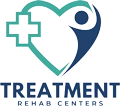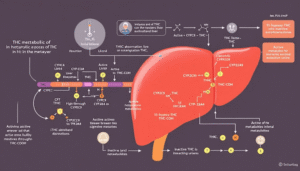Getting treatment for drug or alcohol addiction is a big deal and choosing the right treatment center is a big part of that. For many, the decision comes down to staying local or traveling for rehab.
Staying local has its perks but traveling for rehab has its own advantages.
Check out our latest blog from TreatmentRehabCenters.org to see if traveling for rehab is right for you and what to consider before you decide.
Why Do People Travel for Rehab?
Addiction doesn’t care where you live but where you get treated can make a big difference in your recovery.
Traveling for drug rehab has become more popular for several reasons including access to specialized programs, more privacy and to get away from familiar triggers.
Access to Better Treatment
Not all treatment centers are created equal and some areas may have limited options for specialized care. By looking beyond your local area you can find facilities that offer evidence based treatment for your specific needs.
Whether you need dual diagnosis treatment, gender specific programs or luxury amenities traveling can open up more options for you.
A Fresh Start in a New Environment
For many people recovery starts with a clean slate. Traveling for rehab allows you to get away from the environments, people and routines that may be contributing to your addiction. A new setting can give you the mental and emotional space to focus on your recovery journey.
More Privacy and Anonymity
Getting treatment close to home can make it hard to be private, especially in smaller communities where news travels fast. Traveling to a different city or state can give you more anonymity so you can focus on your healing without worrying about judgment or stigma.
Plus, treatment services in these centers can offer more comprehensive support for your needs.
Get Away from Substance Abuse Triggers
Triggers—the people, places or situations that feed addiction—can be hard to avoid when you’re in your own environment. Traveling for rehab takes you out of those stressors and gives you a chance to develop new coping skills in a controlled and supportive environment.
Traveling for Rehab Benefits

The benefits of traveling to a drug rehab center go beyond access to specialized care and privacy. Here are some of the advantages:
1. More Commitment to Recovery
Traveling for rehab is a big commitment. Leaving your home environment is a big statement to yourself that you’re serious about recovery from drug addiction and willing to make lasting changes. The physical distance from home also makes it harder to quit if things get tough.
2. New Perspectives
Recovery is about growth and being in a new place with different treatment centers exposes you to new perspectives and experiences. Whether it’s outdoor therapy in a beautiful setting or meeting people from different walks of life, these experiences can add to your journey and inspire you to change.
3. Holistic Healing
Many top treatment centers in travel destinations incorporate holistic therapies into their programs to address drug and alcohol addiction such as yoga, meditation, equine therapy or nature based activities.
These can complement traditional treatments and help you reconnect with your mind, body and spirit. Many centers also offer specialized alcohol addiction treatment programs for specific needs.
4. Less Risk of Early Relapse
Being in a treatment center away from familiar environments and triggers can reduce the risk of early relapse. Without access to substances or enablers you’ll have more chance to stay focused on your recovery goals.
5. Build a Support Network
Traveling for rehab introduces you to a new community of people who are going through the same struggles and have the same goals. Building relationships with others in recovery can be a powerful source of support and encouragement during treatment and beyond.
6. Access to Specialized Programs
One of the biggest benefits of traveling for rehab is access to specialized programs that may not be available locally. Many treatment centers offer unique and innovative approaches to addiction treatment for specific needs and demographics.
By traveling for rehab you can find a program that fits your exact needs and make your recovery journey more effective. Inpatient programs in particular offer structured support and 24/7 care for a full recovery.
For example some treatment centers may offer programs for:
- Co-occurring disorders such as depression or anxiety
- Trauma informed care
- LGBTQ+
- Veterans
- First responders
- Executives or professionals
These programs offer targeted and effective treatment approaches and increase the chances of recovery. Whether you need dual diagnosis treatment or a program that fits your professional lifestyle, traveling for rehab can get you the exact care you need.
Traveling for Rehab Challenges
While traveling for rehab has many benefits it’s important to be aware of the challenges and plan ahead. Here are some to consider:
1. Travel and Treatment Cost
Traveling for rehab comes with extra costs, airfare, accommodation and transportation. While some rehab centers include these costs in their program or offer financial assistance, you need to factor these in when budgeting for treatment.
Organizations like the Substance Abuse and Mental Health Services Administration (SAMHSA) can provide grants and funding to help cover these costs.
2. Distance from Family and Friends
Being far from home means limited access to your support network. While some people find this distance helpful, others may feel isolated without loved ones around.
Many rehab centers offer family therapy sessions either in-person or virtual to help bridge the gap. State funded rehab centers also offer treatment options for those who can’t afford to travel far.
3. Post Treatment Transition
Once treatment is over you’ll need to transition back to your home environment. Without proper planning this can be tough especially if you’re going back to the same triggers and stressors. Aftercare planning is key to a smooth re-entry into your daily life.
How to Choose the Right Rehab Center When Traveling

If you’ve decided traveling for rehab is the way to go, next step is to find the right facility for you. Here are some tips to help you:
1. What are Your Treatment Goals
Before searching for rehab centers take time to think about your treatment goals. Are you looking for help with a specific substance, co-occurring mental health conditions or a history of trauma? Knowing your priorities will help you narrow down your options.
2. Check Accreditation and Licensing
Choose a rehab center that is accredited by recognized organizations like The Joint Commission or Commission on Accreditation of Rehabilitation Facilities (CARF).
When you consult with TreatmentRehabCenters.org for placement options, these certifications and our rigorous verification process for such credentials mean the facility meets high standards of care and follows evidence based practices.
3. What’s the Treatment Approach
Rehab centers offer different approaches, 12-step, CBT, holistic and more. Look for a facility that fits your preferences and offers a individualized treatment plan.
Consider the Location and Environment
Think about what kind of environment will support your recovery. Do you prefer a peaceful nature retreat or a busy city with access to culture? The location matters.
5. Aftercare Support
Recovery doesn’t stop when you leave the rehab center. Ask about the facility’s aftercare programs, outpatient therapy, alumni support groups or virtual counseling. A good aftercare plan can make all the difference in long term sobriety.
6. Cost and Insurance
Traveling for substance abuse treatment may seem expensive but you need to consider the cost and insurance implications. Many insurance plans cover some or all of the costs of rehab, including transportation and accommodation.
Some treatment centers also offer financial assistance or sliding scale fees for those who are uninsured or underinsured.
When considering the cost of traveling for rehab you need to factor in:
- Transportation costs (flights or gas)
- Accommodation costs (hotel or rental fees)
- Treatment costs (program fees and insurance coverage)
- Insurance coverage and out of pocket expenses
Research and understand the cost and insurance implications before you decide. Many treatment centers offer financial assistance or can help you navigate the insurance process so it’s more feasible to get the best care.
Getting Ready for Rehab
Now that you’ve chosen a rehab center, it’s time to prepare for your trip. Here’s how to get ready:
1. Travel Arrangements
Arrange transportation to and from the rehab center and consider if you’ll need accommodations for family members who will be visiting. Many rehab centers offer travel planning assistance to make it easier.
2. Tell Loved Ones
Tell your family and friends about your decision to travel for rehab. Their support will be huge during this time and open communication will help alleviate any concerns they may have.
3. Pack Wisely
Most rehab centers will give you a list of what to bring, including comfortable clothes, toiletries and any necessary meds. Don’t bring prohibited items like electronics or substances to make check-in smooth.
4. Prepare Mentally and Emotionally
Going into rehab can be emotional. Take time to think about your goals, fears and hopes for recovery. Journaling, meditation or talking to a trusted counselor can help you prepare for this journey.
Life After Traveling for Rehab

Finishing a rehab program is a big deal but recovery is a ongoing process. Here’s how to stay on track after you get home:
1. Create a Supportive Space
Surround yourself with people who support your sobriety and avoid people and places that may trigger relapse. This may mean setting boundaries with certain people or changing your living space.
2. Continue Therapy and Support Groups
Ongoing therapy and support groups like Alcoholics Anonymous (AA) or SMART Recovery can provide continued guidance and accountability. Many of these resources are online so you can access them wherever you are.
3. Create Healthy Habits
Add healthy habits to your daily routine like exercise, healthy eating and mindfulness practices. These habits will boost your physical and mental well being and help you maintain your recovery.
4. Stay Connected with Your Rehab Community
Many rehab centers have alumni programs or events to help former clients stay connected. These connections will give you a sense of belonging and support as you navigate life after treatment.
5. Continuity of Care
Continuity of care is a big part of the recovery process. When traveling for rehab you may worry about continuity of care after treatment. But many treatment centers offer aftercare programs and services to support you in your recovery journey.
These aftercare programs may include:
- Ongoing counseling and therapy sessions
- Support groups and peer support
- Relapse prevention strategies and planning
- Medication management and monitoring
- Coordination with local healthcare providers
By choosing a treatment center that offers aftercare programs you can ensure a smooth transition back to your daily life and maintain the progress you made during treatment. Continuity of care is key to long term success in addiction recovery.
Traveling for Rehab: Get Options for Top Facilities Nationwide Now

Traveling for rehab is a personal decision that depends on your individual circumstances and goals. While it offers many benefits like specialized care and a fresh start it also comes with challenges that require planning.
Now go weigh the pros and cons, research your options and prepare for the journey and you’ll make a decision that will lead to long term recovery. Remember the most important step is to get help – wherever that may be. With the right support and willpower you can get a healthier happier life.
If you or someone you love is struggling alcohol or substances, we can help. Please reach out to our caring, expert team at TreatmentRehabCenters.org today.
All calls are confidential, and we will provide options at facilities matched to your specific goals and needs.











